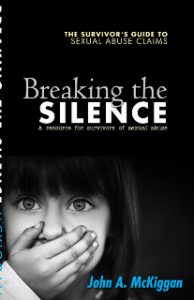The #MeToo Effect: Childhood Sexual Abuse Claims Against the Catholic Church
The Catholic Church, for many, is a place of sanctuary, family and faith; for others, however, it is a painful reminder of systemic sexual abuse that has affected the lives of children for decades. While the Church actively condemns sexual abuse in every form in its public schools, survivors of child abuse are still driven to silence over what happened to them—either recently, or decades in the past.
The #MeToo movement, in recent years, has empowered those who have previously been silenced to speak up—and speak out—against their abusers, and in some cases, the organizations responsible for shielding these abusers from legal repercussions.
The Catholic Church is one organization notorious for covering up sexual abuse scandals within their ranks. In Nova Scotia alone, our past class-action settlement with the Diocese of Antigonish involved 142 people who received compensation for sexual abuse by priests over the course of 50 years.
McKiggan Hebert has recently chosen to represent Douglas Champagne against the Roman Catholic Archdiocese of Halifax-Yarmouth. Champagne, reports being abused by priest George G. Epoch while serving as an altar boy at Canadian Martyr’s Church in the 1960s.
Our hope, if Champagne’s class action is certified by the Nova Scotia Supreme Court, is to help other sexual abuse survivors find justice against the church that failed to protect them.
“There are Hundreds, Perhaps Many Hundreds, of Potential Victims Out There”
According to the Nova Scotia Justice Department’s 2002 Kaufman Report, Epoch sexually abused many male and female children on First Nations reserves while serving in Ontario. Later found to have “an extensive history of sexual abuse,” a public apology was offered by the Jesuit Fathers of Upper Canada in 1992 to those who were abused by Epoch up until his death in 1986.
Champagne’s story begins the same as many victims—someone from a vulnerable family who was sent to the church with the best of intentions by his mother. What followed was months of sexual abuse in the priests’ residence by Epoch, without any attempt at intervention by the other priests living there.
“There is no reason to believe that the Halifax-Yarmouth diocese ran its affairs any differently than the Antigonish diocese did. The policies were the same,” John McKiggan said regarding similarities between the two cases.
Champagne lived in silence for decades after his sexual abuse, but felt compelled to speak out against the actions of his abuser due to the increase of sexual abuse awareness that has followed the proliferation of the #MeToo movement. Just as dozens of victims came forward during the 2009 Diocese of Antigonish settlement, we hope that his one voice can break the silence for other abuse survivors. Champagne hopes that by holding the Church accountable, he can create a safer environment for all.
Need More Information?
It can be incredibly difficult for abuse survivors to talk about what happened to them. Whether from the trauma of the incident, fear of retaliation or a sense of shame that the abuse ever occurred in the first place, the pain and anxiety following sexual abuse can create a silence that lasts a lifetime and trap victims within their most painful memories.
But remaining silent protects abusers and allows victims to continue suffering. With 1 in 3 females and 1 in 6 males reporting sexual abuse before age 17, ending the cycle abuse starts with one thing—speaking up.
That’s why we’ve written Breaking the Silence: The Survivor’s Guide to Abuse Compensation Claims. We hope that by reading our resource guide, abuse survivors can learn about their legal options confidentially, within the privacy of their homes. Seeking help for yourself—and helping others—starts with holding an abuser accountable.
Interested in a free copy of our guide? Contact us or call us today to discuss your case and receive a free copy of Breaking the Silence: The Survivor’s Guide to Abuse Compensation Claims.


